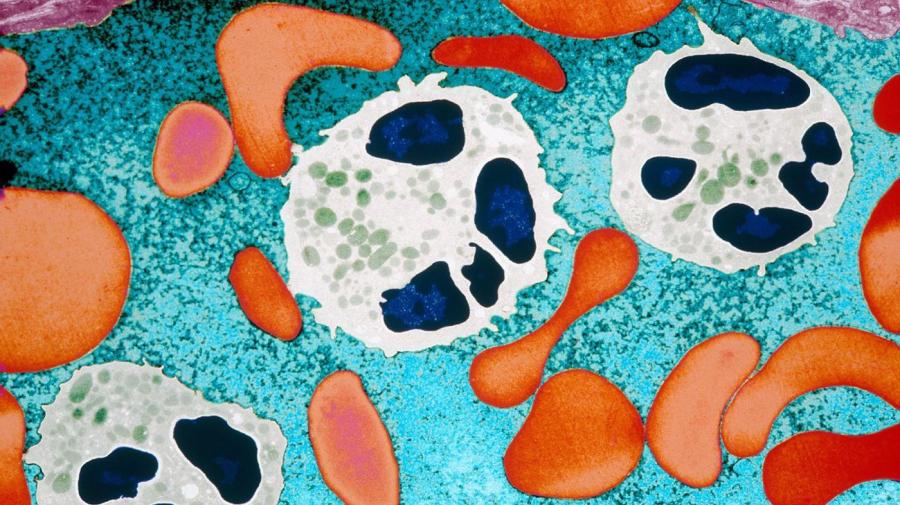What Causes a High Granulocyte Count?

According to Healthline, the most common causes of high granulocyte count include bone marrow disorders, infections and autoimmune disorders. Also called granulocytosis, a high granulocyte count usually indicates a health problem.
Healthline explains that granulocytosis happens when too many granulocytes are present in the blood. Granulocytes are a type of white blood cells that seems to contain small granules when examined under a microscope. These tiny granules have proteins essential for immune system function.
According to Healthline, granulocytes are produced and developed in the bone marrow. They are released and circulated through the bloodstream to perform immune system responses against foreign bodies that cause infections.
Healthline states that some of the major causes of granulocytosis are bone marrow disorders. Chronic myelogenous leukemia, primary myelofibrosis and polycythemia vera are some kinds of bone marrow diseases that cause high granulocyte count.
Healthline also explains that some of the health problems associated with granulocytosis include leukemia, inflammatory bowel diseases, bacterial infections, sepsis, metastatic cancer, kidney failure, rheumatoid arthritis, heart attack and autoimmune disorders. Additionally, burn injuries, habitual smoking, physical and mental stress, as well as usage of medications such as corticosteroids may also result in high levels of granulocytes.
According to Healthline, the treatment for this condition depends on its cause. Blood transfusion, medications, surgery, radiation therapy and chemotherapy are some of the common treatment methods for granulocytosis.





